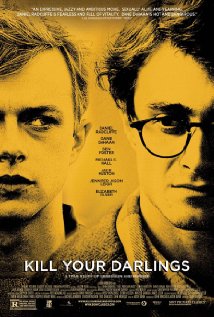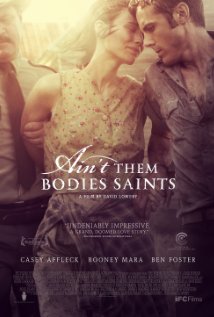 Kill Your Darlings/2013/Killer Films/104 min.
Kill Your Darlings/2013/Killer Films/104 min.
Thinking about the 1940s, an era largely defined by World War II vets and the women they came home to, it’s easy to forget the generation just after – the post-war crop of young people on the cusp of adulthood as the long battles finally ended and the course of history forever changed.
I was reminded of that watching “Kill Your Darlings,” a dark story about poet Allen Ginsberg (Daniel Radcliffe), the relationships he forged with other beat-generation writers while at Columbia University and his connection to a 1944 murder.
As a student, Ginsberg clashes with academic convention. On the personal front, he quickly falls under the romantic spell of fellow student Lucien Carr (Dane DeHaan), a feline beauty: polished, urbane, subversive and jaded. Through Carr, Ginsberg meets the rugged and dynamic, as well as older and more established, Jack Kerouac (Jack Huston) and the bizarre, dope-addicted literateur William Burroughs (Ben Foster). On the fringe of their circle is Carr’s mentor-turned-stalker (and one-time lover?), academic David Kammerer (Michael C. Hall).
Director and co-writer John Krokidas masterfully renders the period and its prejudices, and elicits exceptionally good performances from his energetic cast – they are all memorable, especially Ben Foster as Burroughs. Jennifer Jason Leigh, as Ginsberg’s mother Naomi, is also a standout. Though it doesn’t play as a thriller (it’s not trying to, particularly), “Kill Your Darlings” tells the tense, disturbing, sometimes-moving backstory of a few inspired and reckless geniuses who redrew the boundaries of literary expression.
“Kill Your Darlings” opens today in LA.












From FNB readers